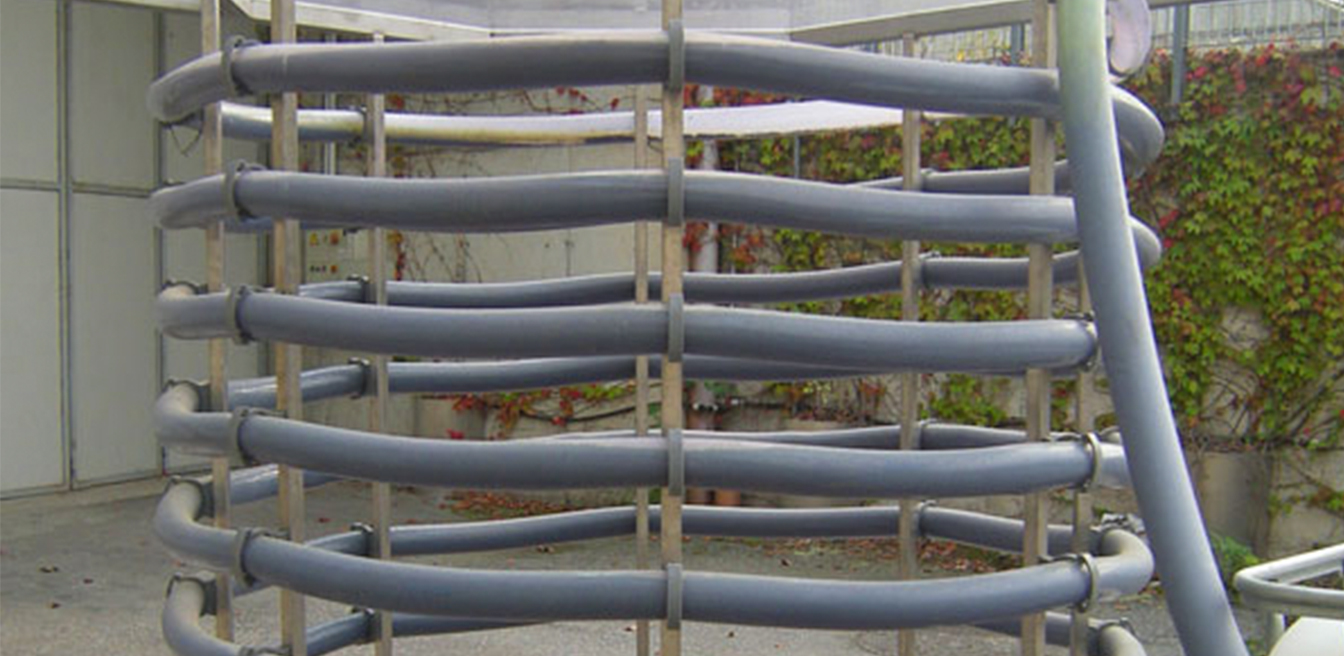DENITREN Project is part of the Agriculture Regional Program for research and development, 2008-2010.
Environment Park is lead partner of the project, collaborating with Politecnico di Torino, Coldiretti Piemonte and Associazione Allevatori Regione Piemonte.
The aim of the project is to develop an innovative method for the treatment of liquid manure and livestock wastewater effluents based on the biological activity of microalgae. Municipalities, communities and industries the world over are keenly exploring bioremediation as an important route by which to clean up wastewater. Bioremediation uses naturally occurring microorganisms and other aspects of the natural environment to treat wastewater of its nutrients. Algae are an important bioremediation agent and are already being used by many wastewater facilities and cultivation in open ponds or in photobioreactor has been extensively studied. For the development of an algal culture, the system only has to provide the algae with solar energy and food in terms of a right contribution of nutrients like carbon and nitrogen. This system could then find another application in treating organic manure with a high nitrogen content. This study aims to develop a pilot plant for the removal of nitrates, based on tubular photo-bioreactor, in which the algal growth should take place. The bioreactor is arranged in vertical spiral manner with an air-lift system for oxygen removal. Liquid manure and livestock wastewater, after a filtration process, are pumped in the photobioreactor by using peristaltic pumps and the system could be operated in batch or in continuous mode. The algae we intend to use for this project are not organisms genetically modified and present high nitrogen removal efficiency (denitrification) that will be continuously evaluated and compared to other systems. In particular Chlorella Vulgaris and Scenedesmus Obliquus have shown extraordinary vitality in urban wastewater, tolerate a wide range of pH and temperature and have high efficiency in the removal of nitrogen and phosphorus. The plant will be configured with a subsequent anaerobic digestor for the production of biogas so to optimize the global energy efficiency of the plant.
After denitrification process, further on the remaining algae for the production of pharmaceutical byproducts (omega-3 fatty acids) or to use as a biofuel. The feasibility and applicability of this system to different agricultural realities will also be evaluated, verifying the possible application of large scale systems.
The adoption of such system makes it possible to achieve the following results:
- Nitrate reduction: 40-90%
- Phosphorus reduction: 40-90%
- BOD reduction: 1,5-1,92 kg O2/kg of produced microalgae
- Oil content of produced algae: 14-40%
- Algae oil yield: 50000-180000 L/year/ha (against the 500-1250 L/year/ha of seed plants)
- Algae protein content: 30-45%
(click to widen Denitren bioreactor layout)
Our role
As coordinator of the project, EnviPark has followed all activities related to the project, dealing in particular with designing and realizing the photobioreactor, using it for all experimental testing with two microalgal strains, in order to assess denitrification capacities on livestock wastewater.
In addition to this, the economic sustainability of the entire process has been evaluated, identifying potential exploitation methods of algae downstream of the treatment.

